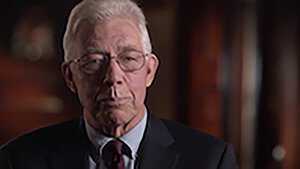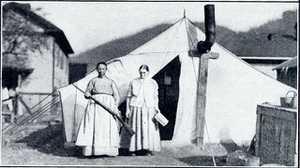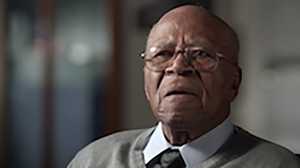Industrial Democracy
The 2016 documentary The Mine Wars examines two notions of freedom vying for prominence in the workplace. While coal operators claimed they maintained the "freedom of contract" to negotiate with workers independently, miners contended that the right to assemble and associate guaranteed in the First Amendment should extend to them in a union of workers. Below, scholars reflect on decision-making and influence in an industrial context during the early 1900s.

Beverly Gage, Professor of History at Yale University: When people think about unions today, they tend to think about things like wages and retirement benefits. And those were really important to unions even a century ago. But many of the visions that inspired the early labor unions in the late 19th and early 20th century were actually much broader than that. They were about things like worker safety. But they were even bigger. They were a question of who was going to control the conditions that people worked under. Were workers in the workplace going to have any say over their own jobs? One of the most popular phrases at the turn of the century to describe what unions wanted was this phrase, "industrial democracy." Just because you were a wage worker, just because you worked in a factory or you worked in a mine, it didn't mean that you gave up all of your rights as an American -- the right to free speech, the right to vote how you chose, and the right to live the quality of life that a citizen deserved.

James Green, Author, The Devil is Here in These Hills: The great social dilemma, as Louis Brandeis, the great people's lawyer, said of the Progressive Era was the question of industrial liberty. American workers left the Constitution behind when they went to work in a steel mill or a coal mine. They couldn't stand up and give a speech against the boss. Was this an American way? Or should workers be allowed to bring the Constitution, the Bill of Rights, into the workplace? And Brandeis, of course, felt that they should, and that there should be something called industrial democracy or industrial liberty. And that sort of highlighted the fundamental clash of the era.

Rosemary Feurer, Professor of History at Northern Illinois University: Labor rights aren't seen as civil rights, but they should be. They are civil rights.... you know, that's what Frank Keeney and all the other miners were asking for, a basic civil right to say, "I should have a say in how things are produced and what use are made of those goods that I produce." And the kinds of things that Mother Jones was asking then are still relevant. Who should own the coal and who should have the right to deploy the coal?
Beverly Gage: Many of the factory owners [and] mine owners during this period were making a case that what American freedom was really about was the right to private property, the right to dispose of that private property as you chose, the right to make individual contracts with individual workers and that the kinds of tactics and the kinds of institutions that workers were trying to develop during this period were un-American. They were coercive. They were an infringement on the employer's right to control the property that he owned… beginning in 1917, but really extending after the war, a lot of employers take this up and this idea that capitalism is the way of the United States, that all of these radical challenges that are happening are not only dangerous but they are un-American.

Thomas Andrews, Author, Killing for Coal: America's Deadliest Labor War: There were other issues -- wages, hours, conditions -- but the thing that most American corporations were unwilling to admit was the idea that workers should have some sort of collective voice and that workers should have some sort of collective bargaining power. This is what American capitalists were so resistant to. They tended to see the truest American principles as principles that involved individualism.

John Hennen, Professor, Morehead State University: [Coal operators] adopted an ideological premise that they called the American Plan, meaning: "You're only an American if you negotiate an individual contract with your employer. We don't need any intermediaries. You don't need some collective security. You're an American. You're a free person only if you negotiate on an individual basis." Well, the labor movement is saying that's ridiculous. That may have been an appropriate model for 1820, but in the days of industrial capital, workers need the right to negotiate collectively to protect their interests, to protect their definition of what being an American is as opposed to the idea emanating from the coal companies that being an American is having absolute loyalty to the industrial capitalist system.
James Green: There was also a sense that industrial America had become something undemocratic, something ugly, something that a lot of middle class Americans, farmers, folks who didn't have a stake in corporate profits, were very angry about and, and wanted some sense of fair play and justice. And in 1915, a Commission of Industrial Relations was appointed [and] reported to the President that unless workers had the right to organize, unless civil liberties prevailed in the workplace, unless there was some more fair distribution of wealth that these violent conflicts would only escalate. And in fact, World War I came along and diffused that, but otherwise that prediction might very well have come about, and in a way it did in West Virginia in 1921.







